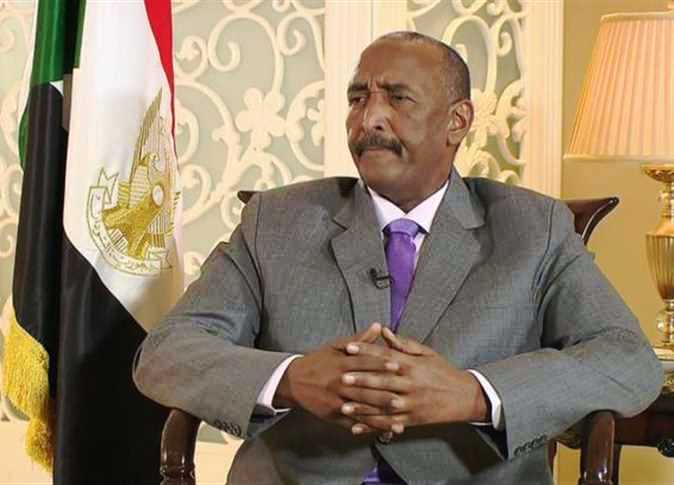Military leaders control power in Sudan due to lack of political agreement: al-Burhan
June 19, 2022 (KHARTOUM) – The lack of an agreement between the political parties forces the military component to retain power in Sudan, said the coup leader Abdel Fattah al-Burhan who further accused the demonstrators of attacking security forces.
On October 25, 2021, al-Burhan seized power and dissolved the civilian government saying it was controlled by a minority of political forces.
In fact, the divorce with the formerly ruling Forces for Freedom and Change occurred after disagreeing with him on the rotation of the Sovereign Council chairmanship to a civilian leader, the reform of the security sector and the handover of their businesses to the civilian government.
In an interview with the U.S.-funded Al-Hurra TV, al-Burhan denied responsibility for their continued grip on power saying that the military wanted to restore civilian power as soon as possible, but the lack of political agreement led to their continued rule.
“On October 25, we were ready to stop the coup as soon as a political agreement was reached. We tell those who are talking about ending the coup that this measure (the coup) was necessary at the time (…) and we will stop our actions once an agreement is reached to restore the democratic path,” he said.
The FFC say that negotiations with the coup government should lead to the restoration of civilian rule and the total removal of the military component from power.
In a bid to justify the use of excessive violence against protesters, the head of the military-controlled Sovereign Council further accused the demonstrators of violating the public order and attacking police stations and government headquarters.
“The security forces have clear instructions not to attack protesters who want to peacefully express their opinion. Also, they are ordered not to carry weapons or chase demonstrators, and to remain in their positions and protect state institutions” he said.
The security forces used excessive violence against protesters and 102 protesters were killed. Further, the security agents are accused of raping detained female protesters.
The police forces are now attacking the demonstrators’ gathering points to prevent them from organizing demonstrations and continue to hunt protesters in the residential neighbourhoods after their dispersal.
Cartridge weapons
In a related development, the Sudanese police Sunday denied the use of the internationally banned cartridge weapon to disperse the anti-coup protests.
“The police forces do not use any firearms against the demonstrators, and they do not have any prohibited weapons in their stores,” said Police spokesman Brig Gen Abdallah al-Badri in statements to the Sudan Tribune about the use of cartridge guns on Sunday.
A report by the independent Central Committee of Sudanese Doctors on Saturday said that 8 of the 102 victims were killed by the internationally banned weapon.
The medical group further said that about 747 others were injured by the cartridge rifles in the protests led by the resistance committees.
Speaking about the rapprochement with the former ruling National Congress Party (NCP), al-Burhan said there is no alliance between the military component and the banned party.
“We do not ally with any political party, because that does not conform to the principles of the military establishment,” he said
He stressed that this party is prohibited from participating in the transitional period.
After the coup, Al-Burhan reinstated hundreds of NCP cadres to the civil service and the various security organs.
Also, he allowed wanted NCP leaders to appear publicly and organize demonstrations against the United Nations mission in Sudan.
Speaking about the suspended international economic support to Sudan, he simply said that his country “rejects any conditional support”.
The international community says the resumption of economic aid to Sudan depends on the restoration of a civilian-led government.

